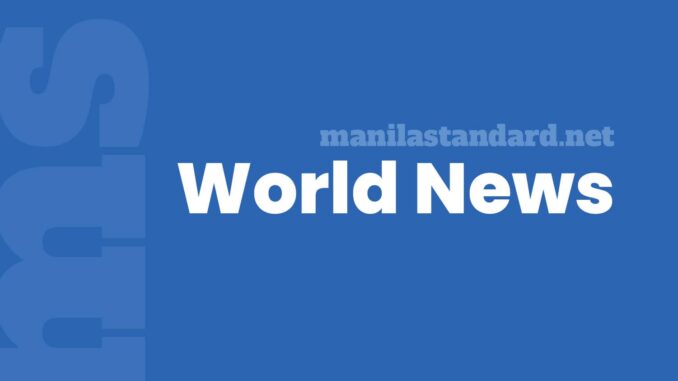
TIRANA, ALBANIA — Amid the scorching heat at the Albanian port of Durres, 102 containers set sail for Thailand in early July, sparking a high-seas drama that highlighted the perils of the global waste trade.
According to official papers reviewed by AFP, the containers were filled with waste material that was set to be processed and destroyed far from Europe’s shores.
But weeks later, the containers are still adrift in the Mediterranean, following a months-long back-and-forth over what exactly was being shipped and whether it was legal.
Enormous amounts of waste are regularly sent to developing countries — part of a global industry that sees Western nations outsourcing its treatment to Asia and Africa.
The practise has long been denounced by environmental organisations.
Despite the criticism, the waste management trade continues to be a multibillion-dollar enterprise.
The handling of illicit material alone generates between nine billion and 11 billion euros each year, according to the Financial Action Task Force, a leading watchdog tracking illegal trade.
The World Bank estimates that approximately two billion tonnes of waste are produced annually across the globe — expected to reach 3.4 billion tonnes by 2050.
Within those mountains of waste, regulators have deemed a certain portion hazardous.
These include substances that can be harmful to human health or the environment due to their chemical reactivity or toxicity levels.
To better regulate the industry, the Basel Convention — signed in 1989 by 53 countries — prohibits members of the Organisation for Economic Cooperation and Development (OECD) from sending waste to non-member states.
But Albania, which is not a member of the Paris-based economic forum, is free to ship waste abroad.
The material stowed away in the 102 containers originated from the Turkish-owned Kurum International steel plant in central Albania’s Elbasan, according to Albanian media reports.
The waste was first purchased by the Albanian company Sokolaj, which then sold the material to its subsidiary in Croatia, GS Minerals, with the cargo set to be offloaded in Thailand for processing.
According to documents seen by AFP, Sokolaj labelled the waste as “iron oxide” — a substance that is not prohibited for shipment or considered hazardous.


Be the first to comment